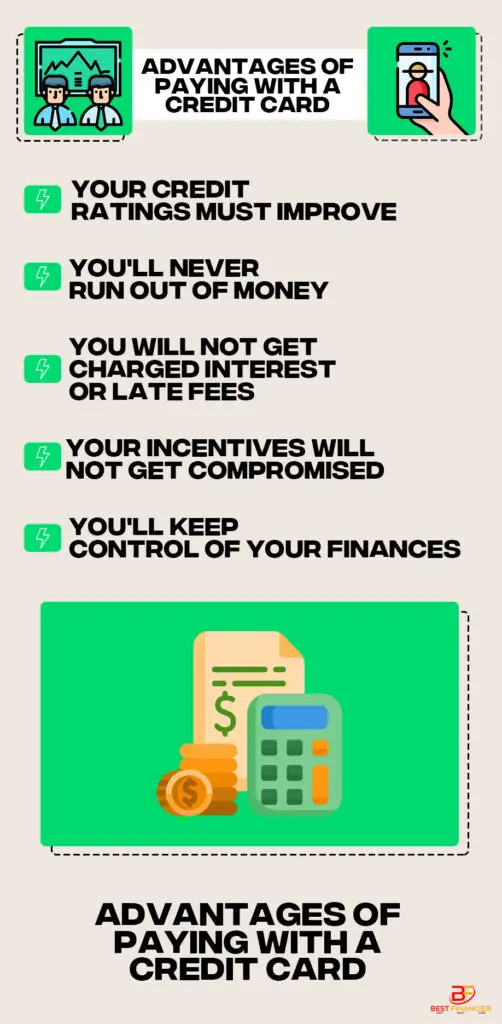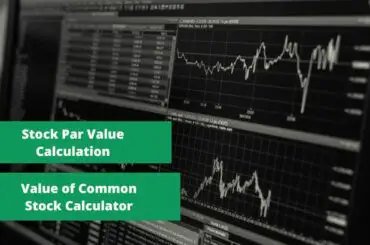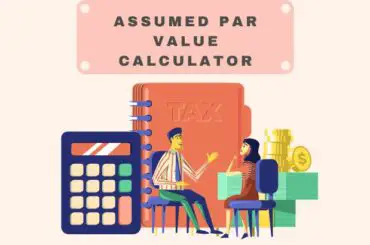Information presented on this web page is intended for informational and educational purposes only and is not meant to be taken as legal, financial, investment or tax advice. We do not accept any responsibility for any trading or investment related losses. Please review our disclaimer on before taking action based upon anything you read or see.
Credit cards are rapidly displacing cash and checks as the most widely accepted mode of payment. Regrettably, they also make it simple to expend more than you expected. Many individuals also misuse their credit cards, accumulating large sums before realizing it. Thus, we have made this post on the monthly credit card payment calculator to help you.
Additionally, many debtors with significant credit card bills repay the bare minimum each month. This gets done to free up cash flow and delay the agony of paying down the amount. While this will maintain your credit card’s active and top form, it will not assist you in paying down your debt. This is true, particularly if your interest rates increase.
Many consumers are unaware of how long it’ll take them to clear off their credit cards with minimal monthly payments. This is in addition to how much charge they will pay over time. Thus, this post on the monthly credit card payment calculator will be indispensable for you.
How to Use this Monthly Credit Card Payment Calculator
This calculator can make credit card decisions for a variety of cards. As previously stated, you must input the following information for each:
- The amount of your credit
- The credit card’s interest rate
- length of the credit term in years
- Interest accrual (monthly, quarterly, semi-annually, or annually).
The calculator will calculate the minimum monthly payment in USD for each card. After filling out the previously highlighted sections, click the “calculate button.” If you want to recalculate, choose “reset,” All previous inputs will get erased.
Monthly Credit Card Payment Calculator
How to Calculate a Monthly Payment?
Funding a large purchase, refinancing debt, or paying unexpected costs feels fantastic in the time – until the first loan cash comes due. As you include a new expense into your plan, all of that sense of financial liberty vanishes. Regardless of the monetary amount, it’s a transition, but don’t freak out.
Perhaps it’s as easy as cutting down on your eating-out costs or taking up a side business. Let’s concentrate on your capacity to make that recurring billing in whole and on time.
Of course, before taking out a private loan, you should understand your repayments and what you’ll have to do to repay your debt. It’s helpful to have a rudimentary understanding of how your repayment choices get calculated, even if you’re a math wiz or dozed Algebra I.
This will guarantee that you only loan what you can handle monthly, with no unpleasant shocks or penny-pinching situations. So let’s do some math and look at the financials of your payback choices to be sure you understand what you’re receiving.
How to Calculate a Loan Payment?
The first step is to compute your monthly bill requiring no arithmetic: determining your loan type, which determines your loan repayment plan. Do you intend to take out an interest-only or an amortization loan? You’ll be capable of figuring out the sorts of loan payment computations you’ll need to do once you know.
You only make payments on interest-only loans for the first few years and none on the principle sum – the loan itself. While this results in a lower premium, you will ultimately have to pay off the entire debt in one single amount or with a larger monthly bill.
Most individuals use these loan alternatives to purchase a more expensive home, have more monetary flexibility, and keep total expenses low if their resources are limited.
An amortized credit is the other type of loan. These loan choices cover the principal and interest debt over a specified period (i.e., the term). In other words, an amortized loan demands the lender to make regular, planned repayments (an amortization plan) on both the principal and interest.
Any additional fees paid on this credit will get applied to the principal. A vehicle credit, personal lending, a school loan, and a standard conventional loan are all instances of amortized loans.
Advantages of Paying with a Credit Card

You do not need to wait until your payment card bill is due to submit a transaction. The date on your billing post indicates when you must make a payment to maintain your account active. As a result, you may make multiple payments (also known as micropayments) to your credit card provider. Making several credit card payments may assist you in the following ways:
1. Your credit ratings must improve.
You demonstrate that you are reliable by obtaining and returning your credit card on time and in full. It shows that you don’t depend on credit cards to pay the bills but rather use plastic like a clever expert. Credit scores get determined by credit use.
Your credit ratings should improve since you’ll have a long history of on-time payments and no outstanding amounts. Any new lender will see you as a low-risk client, and favored accounts should be available shortly.
2. You’ll never run out of money.
With a credit card, it’s simple to overspend, and many balances come with enormous credit limits that are all too tempting. You may prevent accumulating unsustainable card debt by paying off each transaction as it occurs. All you have to do is ensure your bank account has enough money to pay your expenditures.
3. You will not get charged interest or late fees.
Apart from not having a large payment hanging over your heads, paying on time and never rotating a balance ensures that the creditor will not charge financing costs on carried-over debt. Late payment fines get avoided if you make your payments on time.
4. Your incentives will not get compromised.
If your credit card offers incentives in cash, points, or kilometers, you’ll be able to avoid costly debt while also profiting. This is true, mainly if you use the card often. The more points you earn, the further you can spend on merchandise, services, and flights. Interests won’t eat into the worth of those prizes if the balance gets kept at zero.
5. You’ll keep control of your finances.
Several payments might also offer you a more incredible feeling of financial control. You will prevent being surprised by the size of any debt accumulated over a month, but you’ll also be more inclined to stick to your budget.
Frequently Asked Questions
How is the balance on a credit card calculated?
Your credit card balance gets calculated by aggregating all your charges and any accumulated interest, missed fees, international transaction fees, yearly fees, money transfers, and wire transfers. Your credit card balances also reflect any repayments or bill credits made to your accounts.
Does making multiple credit card payments a month hurt your credit?
No. Making all of your repayments is critical to improving your credit score, and maintaining your revolving debt far below your credit limit can also help you succeed. After all, these are the two most essential components of the FICO score, which most financiers use to assess applicants.
Sending several credit card transactions throughout the month is a terrific strategy to guarantee that your bills always get compensated and that your indebtedness never gets out of hand. It might help you improve your credit score and also has additional benefits.
Here’s everything you need to understand about repaying your credit card account in installments and when you should pay at the end of the summer.
How is the credit card balance calculated?
Your credit card balance gets calculated by aggregating all your charges and any accumulated interest, missed fees, international transaction fees, yearly fees, money transfers, and cash advances. Your credit card balances also reflect any repayments or bill credits made to your account.
Is it better to make monthly payments or pay in full?
Paying your credit card bill in full every month at a time, incurring interest and avoiding debt accumulation are essential.
What is the 15 3 rule?
According to the 15/3 hack, you may improve your credit score by paying half of your credit card bill 15 days before your bank statements deadline and the other half three days beforehand.
The 15/3 credit card payment trick is also excellent for customers paying off their balances monthly (those with a long-term load won’t gain much since their ratio will still be significant) but only do so before the bill is due.
When should I pay my credit card twice a month?
Divide your annual credit card payment in half and pay it every two weeks to achieve success. The quicker you repay your loan, the lower your monthly financing costs.
Is it reasonable to pay a credit card early?
Yes. You can decrease the amount your card issuer reveals to the credit bureaus by getting an early reimbursement before your payment period ends. As a result, your credit usage will reduce, which might improve your credit ratings.
How can I quickly raise my credit score?
There may be quick solutions to raise your credit score if it’s less than you’d like. You may be able to add as much as 100 points rapidly based on what’s keeping it down. The following suggestions can help you achieve this:
- Become a registered user.
- Extend your credit line.
- Look for mistakes in your credit report.
- Request that any unfavorable items on your credit record that have gotten paid off get deleted.
- Boost your credit score
- Always pay your payments on time.
- Use a credit card that is secured.
- Handle accounts in collections
Why is it essential to make your monthly credit card payments?
The essential rule to remember while using credit cards is to pay on schedule and within budget. This simple guideline may prevent you from getting interest rates, late fines, and bad credit ratings. You may avoid paying interest and improve your credit rating by completing your account as a whole.
What’s the minimum monthly payment on a credit card?
Most credit cards need a monthly minimum repayment, usually a certain sum, such as $20 to $25. This is on top of a proportion of your balance, which is generally 1 to 3%. Paying the bare minimum is tempting, mainly if your finances are short. The less you contribute, the more you’ll have to pay afterward.
How do I know how much I should pay on my credit card?
When it comes to credit card transactions, a good rule of thumb is to pay the whole amount or as much as you can handle. Pay as much as possible towards each credit card while paying the least on the others if you’re attempting to pay off multiple credit cards.
How do you calculate monthly principal and interest?
Because you’re completing monthly installments during the year rather than yearly installments, the 4% interest rate is split by 12 and multiplied by the remaining balance on your credit.
Is it better to make two credit card payments a month?
Yes. The most crucial component in credit ratings is making all of your repayments. Second, you are more likely to pay more than the minimum amount required by making several repayments, lowering your debt quicker. Maintaining a low credit card debt will result in a low usage rate, which is beneficial to your credit score.
How can I avoid interest on my credit card?
The following are some methods for avoiding credit card interest:
- Always pay off your credit card balance in full each month.
- Use a balance transfer credit card to refinance.
- Make significant purchases with caution.
- Make use of a debt payback strategy.
- Make numerous monthly credit card payments.
- Use your money to pay off your debt.
- Take out a personal loan.
What happens if you only pay the minimum?
You will pay so much in interest if you make minimum repayments. You may have extra cash if you merely make the minimum monthly payment. On the other side, you’ll have paid significantly more than the initial sum by the time you pay it off. Plus, spending the bare minimum can keep you in indebtedness for a long time.






